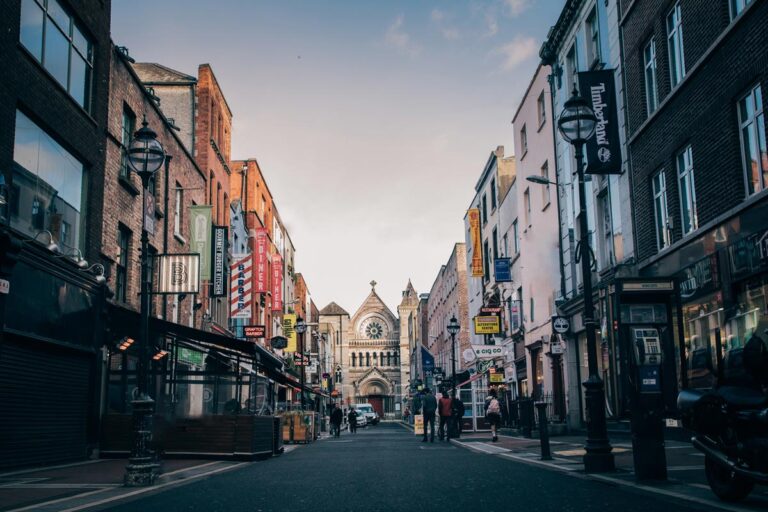What are vulture funds and how are they affecting the Dublin housing crisis?
I’ve lived in Dublin on and off for the past five years. Since I first started renting here in 2016, according to Irish rental website Daft.ie, the average price of an apartment in South Dublin City has increased from €1,663 to €2,244 per month. In other words, the average has gone up by 35 per cent, while the national minimum wage has only risen 11.5 per cent in the same period. Not only have rental prices surged, but available property to let is also at a notable low, resulting in a housing shortage throughout the city. Similar to other cities around the globe, this has been occurring for years.
This shortage’s effects were glaring this past September, as many students returned to Dublin for the first time since the COVID-19 pandemic. Rental prices for single rooms in rental units around the city crescendoed in a way that had been slowly building for years, resulting in a number of university students sleeping outside the Dáil in protest.
District Magazine, a counter-cultural digital publication based in Dublin, has thoughtfully and comically documented the tough reality that finding accommodation in the city has become. Its series Living Hell chronicles the worst that landlords advertising on Daft.ie have to offer. Entries from this year include a converted-garage-turn-studio that is smaller than the average parking spot for €800 per month, a kitchen complete with a bunk bed for €850, and a tiny shared studio with only room for one bedside table for €1,100. Though this selection is particularly dire, the cramped layouts ring true to many Dublin renters. So, the question begs, how have we ended up here?
While the answer can’t be neatly summed up, vulture funds can definitely be pointed to as a contributing factor. A vulture fund can be defined simply as “an investment fund that seeks out and buys securities in distressed investments.” Reflecting their namesake, the primary goal of these private equity firms is to swoop in and take leftover shares in dying companies. These shares may then result in high-reward profits.
While this term has been used increasingly in recent years, the growth of these particular investment funds can be viewed as a direct result of the 2007-2008 financial crisis. During the economic downfall, the housing market across the globe took a devastating hit. As many foreclosed on their houses after the bubble burst, those with deep pockets—namely private equity firms like vulture funds—were there to benefit from the broken pieces.
In March 2018, business journalist Fiona Reddan wrote for The Irish Times that “private equity’s entry into the Irish housing market intensified in the aftermath of the financial crisis. In 2014 for example, Irish Nationwide Building Society sold a portfolio of some 12,702 mortgages, worth €1.8 billion, to Lone Star, Oaktree, Mars Capital and Bank of Ireland.” Two of the private equity firms mentioned in the previous sentence are American-based companies, demonstrating how the housing market in Ireland has been increasingly bought up by international investors post-2008. However, international or not, this information displays how private equity firms have benefited from the repercussions of the financial crash years later as the housing market was still in the process of recovering.
Through the economic model of vulture funds, investors willing to take a high risk—“typically […] institutional and wealthy investors,” noted The Irish Times—can profit off of the backs of those without the same amount of disposable income in collective times of financial distress. Fiona Reddan further stated that “funds make money by acquiring the loans at a significant discount, often of as much as 50% of the face value of the outstanding debt.”
The tangible realities of these investment giants’ multibillion-dollar portfolios can be illustrated by the new Griffith Wood development in Marino, Dublin. The property—owned by US investment group Greystar—features one-bed apartments advertised at €1,900 per month. The promotional photos are aligned with Instagram-friendly aesthetics: couples walking in the park with flowers, yoga on the balcony, a single man listening to music on a couch. However, the idyllically eerie, computer-generated lifestyles attached to the property glaze over the disappointing truth that underpins the building complex. Despite initial indications, those interested in the property’s apartments will have to let rather than buy, keeping potential buyers in the seemingly unending cycle of renting.
On 5 October 2021, Independent.ie journalist Cate McCurry traced this story, quoting housing expert and advocate Doctor Rory Hearne in saying that “investor funds continue to flood into Ireland and buy up and now develop via build-to-rent unaffordable rental homes.” Doctor Hearne continued, “There was a four-fold increase of real estate firms buying up homes [in Ireland] between 2016 and 2020, increasing from spending 500 million in 2016 to spending two billion euro on buying up homes in 2020.”
Though the future may seem bleak as rents continue to rise not only in Dublin but worldwide, there are some pinpricks of light ahead. Citizens of Berlin, for instance, have collectively participated in a referendum to vote out vulture funds in favour of socialising 240,000 homes. Similar sentiments are becoming visible in Ireland. In early October 2021, Independent.ie announced that almost 40,000 people in the republic have signed a petition demanding that the Irish Government take action against vulture funds.
However, if action isn’t taken, generations currently entering young adulthood in Ireland will most likely have to emigrate in increasing numbers in order to save up money and build their livelihoods. It’s either that or move back home and live with their parents indefinitely.





